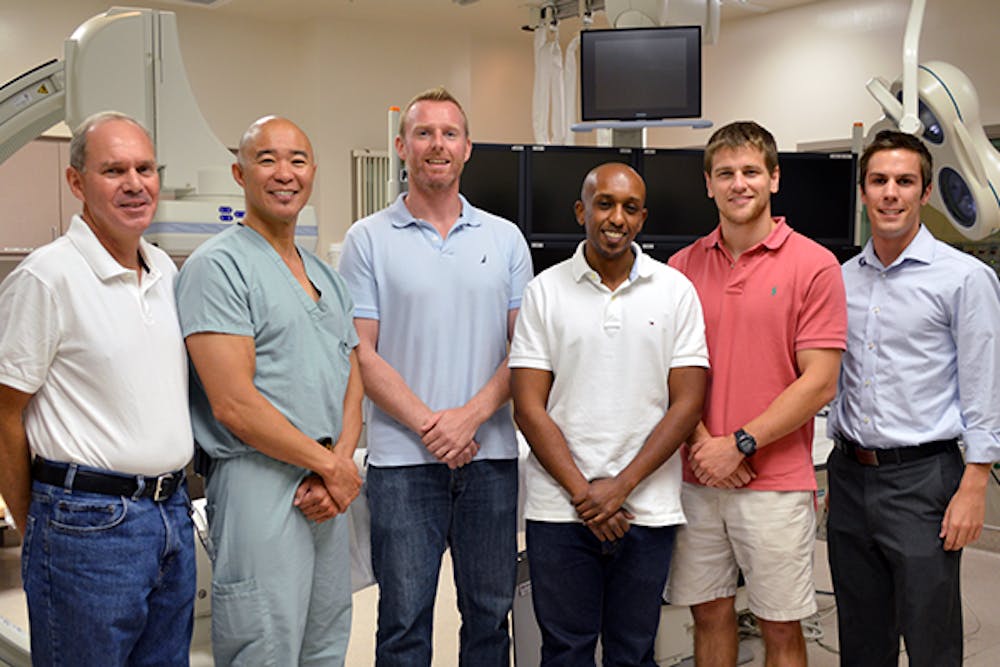 The Endovantage team poses in a research lab where many of the ideas came together to form the company and business. (Photo Courtesy of Endovantage)
The Endovantage team poses in a research lab where many of the ideas came together to form the company and business. (Photo Courtesy of Endovantage)
Endovantage took research that began in the labs at the Image Processing Applications Laboratory in the School of Biological and Health Systems Engineering, and developed a method that saves time and money for hospitals and aneurysm patients.
Using computer technology, Endovantage takes data specific to individual aneurysm patients and predicts the outcome before a patient undergoes surgery. The technology also serves as a catalyst for endovascular training, sales, and marketing.
Haithem Babiker, ASU alumnus and chief technology officer, and David Frakes, chief science officer and University professor, developed the technology, along with a team of researchers and doctors, for the software to make it to the operating table.
Endovantage software started field use at the Mayo Clinic in Scottsdale, and it later expanded to the Barrow Neurological institute in Phoenix. Additionally, Endovantage is featured at the Hospital Beneficência Portuguesa in Brazil.
Biomedical engineering graduate student Justin Ryan was part of the research in the early beginnings of Endovantage. Ryan said brain aneurysms are caused by the ballooning and rupturing of a blood vessel in the brain.
“It is extremely important we know how to treat aneurysms,” Ryan said. “Instead of a procedure taking a couple of hours, it’s now much faster.”
Ryan said the work he does with the company is extremely rewarding.
“It’s important in the grand scheme of things, but the personal scheme of things as well,” Ryan said.
Ryan said that some personal friends of his have died due to aneurysms, so the technology has some personal meaning to him.
Babiker graduated in 2008 from ASU and started the research that would spark Endovantage in 2010.
“An aneurysm is often called the silent killer,” Babiker said.
Babiker said the software uses computer simulations to figure out what treatment is best suited for a patient, and really enjoys the work that he does for the company.
“I doubt there's anything more rewarding than that,” Babiker said.
Brian Chong, associate professor of radiology at the Mayo Clinic, became involved soon after the company started when he partnered in research with Frakes and Babiker. Chong said he works on blood vessels in the brain, or cerebrovascular treatment.
“We can change how we practice this type of surgery,” Chong said. “We can optimize outcome and reduce costs of treatment.”
Reach the reporter at jwilli62@asu.edu or follow him on Twitter @JonWilliams_23
Like The State Press on Facebook and follow @statepress on Twitter




